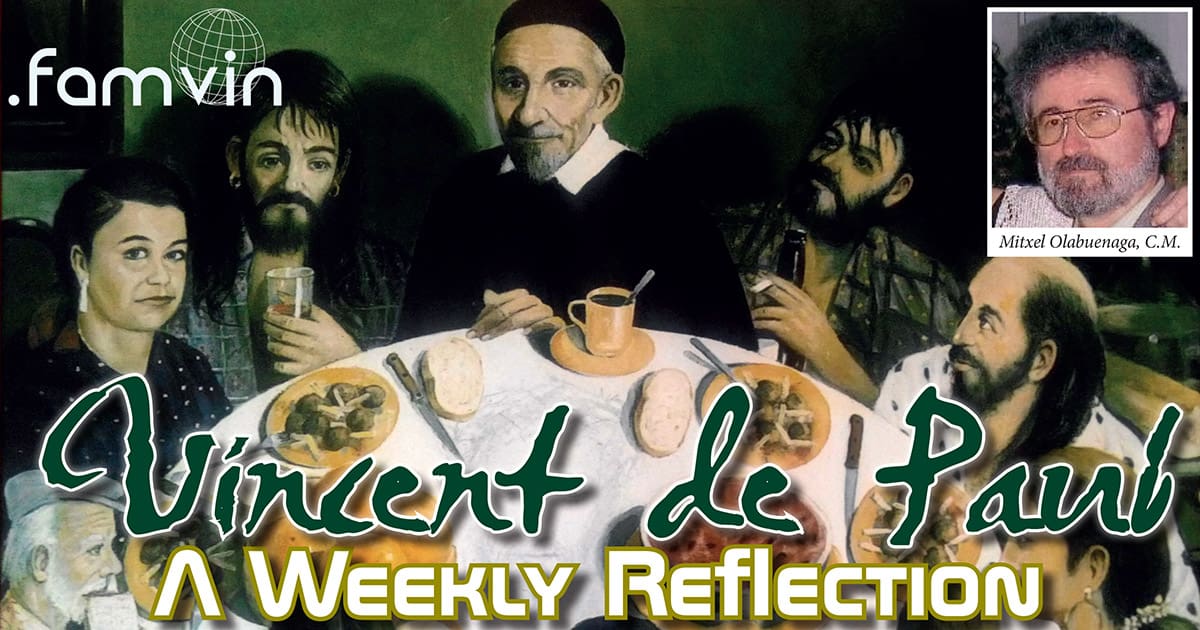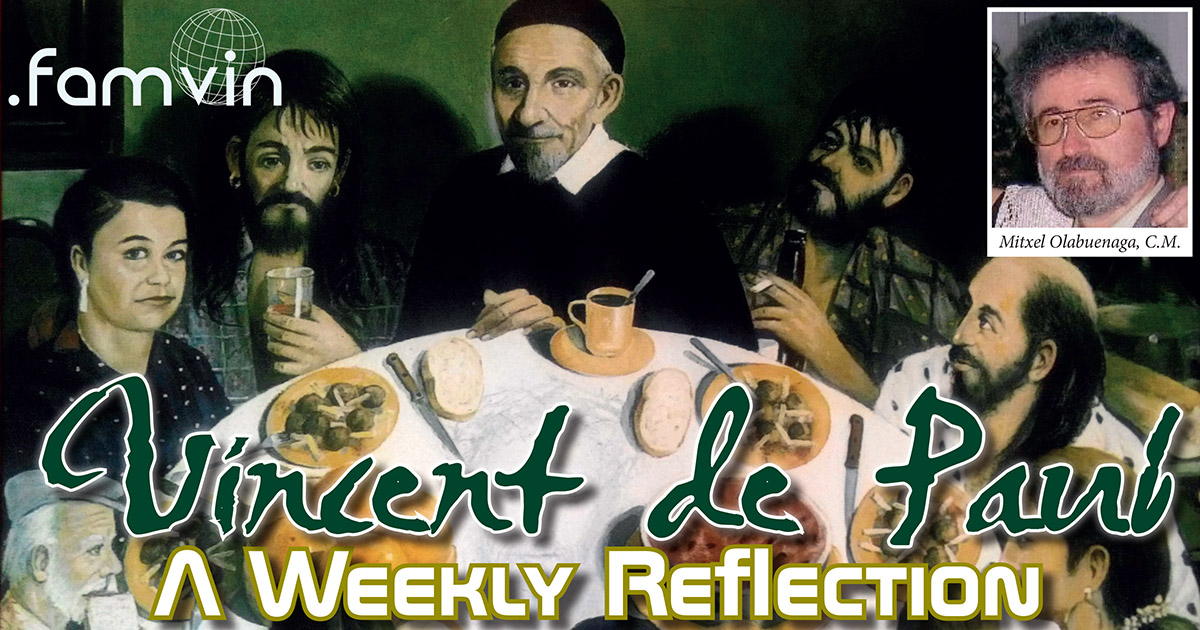Simplicity In Our Living • A Weekly Reflection with Vincent
“I’m well aware that people think of simplicity in general as truth or purity of intention: truth, because it sees that our thoughts conform to the words and other signs by which we express them; purity of intention, because it makes all our acts of virtue tend straight to God. However, when we think of simplicity as a particular virtue, properly so-called, it includes not only purity and truth, but also its characteristic of keeping from our words and actions all deceit, craftiness, and duplicity” (CCD, volume XII, conference 201).
Vincent de Paul
Reflection:
- A brief reading of the writings of Mr. Vincent shows us a big number of references to simplicity. Possibly the same Saint Vincent or, at least, some of his listeners or readers moved him to outline, given its importance, what this virtue meant for the founder.
- He speaks of “simplicity in general” and “simplicity as a particular virtue, properly so-called.” In the first case it is equivalent to “truth or purity of intention;” in the second, to “its characteristic of keeping from our words and actions all deceit, craftiness, and duplicity.” We can combine both statements by saying that the truth is, for Mr. Vincent, that reality “in which there is no falsehood, folly or cunning.” The mechanism that makes it possible to separate the “chaff” from the “wheat” is simplicity.
- Simplicity is, therefore, that virtue that makes it possible for our thinking to be in accordance with what we speak and act or, conversely, what makes it possible for our words and actions to be consistent with our thinking, with everything that we keep in our heart (as the saint said in another text). Perhaps it could be expressed as the classic coherence between thinking and acting. The novelty, in my opinion, is the place that simplicity holds in “greasing” things in this situation (i.e., in helping the gears of thought and action mesh).
- From this perspective, the last of his statements acquires full meaning: it is simplicity that makes it possible to keep “… from our words and actions all deceit, craftiness, and duplicity.” Thus, the truth emerges. Perhaps the question that human beings have always asking (remember Pilate) has a correct answer in this Vincentian thought.
Questions for dialogue:
- Do we “wash our hands” of a social problem?
- To what extent is the “politically correct” inserted in our forms?
- Do we dwell during our dialogues on what is essential?
- Is our preaching accessible to our hearers?
- Is there coherence between our “words” and our “works”?
Mitxel Olabuenaga, C.M.
Tags:








0 Comments